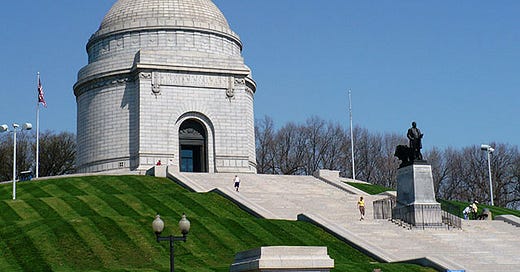Donald Trump and the GOP Cult of William McKinley
As with everything else, Trump gets McKinley wrong.
A Coptic church in Egypt? No, William McKinley’s tomb in Ohio.
If you find yourself in Canton, Ohio, and you’re done visiting the Pro Football Hall of Fame, you might consider a visit to the tomb of President William McKinley, assassinated in 1901 by an anarchist with the unpronounceable name Leon Czolgosz. In the immediate aftermath of this tragedy, nothing was too good for the 25th president. “The double-bronze doors of the entrance,” says the National Park Service “were the largest in the nation at the time of installation.” But history has not been kind to McKinley. Even as he lay dying, Mark Twain ridiculed him (“Considering the unbulky size of his mind, it is odd that he has such difficulty in making it up”), and in 2016 that same National Park Service took away McKinley’s mountain in Alaska, reverting to its earlier name, Denali.
But there’s a GOP cult of McKinley. Karl Rove reveres him because the 1896 presidential election realigned a newly-urbanized popular vote in the GOP’s favor, an arrangement that persisted (with the exception of Woodrow Wilson) until the Great Depression. And now Donald Trump reveres McKinley because the man was, in Trump’s words, “the Tariff King.”
But the day before McKinley died he gave a speech in Buffalo in which he said maybe this tariff business wasn’t such a great idea:
A system which provides a mutual exchange of commodities, a mutual exchange is manifestly essential to the continued and healthful growth of our export trade. We must not repose in fancied security that we can forever sell everything and buy little or nothing…. The period of exclusiveness is past. The expansion of our trade and commerce is the pressing problem. Commercial wars are unprofitable. [Italics mine.] A policy of good will and friendly trade relations will prevent reprisals. Reciprocity treaties are in harmony with the spirit of the times, measures of retaliation are not.
The (fortunately, foiled) attempt on Trump’s own life probably strengthened Trump’s identification with McKinley, but not with the McKinley we see here. My latest New Republic piece draws on the views of four distinguished American historians to argue that the Republicans have been getting McKinley wrong ever since Rove rehabilitated him during the 2000 election. You can read it here.





McKinley at least got a good ballad, including the lines, “Doctor come a running, took off his specs, he told McKinley, you done cashed your checks, in Buffalo, in Buffalo.”